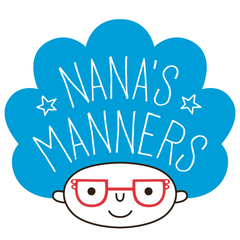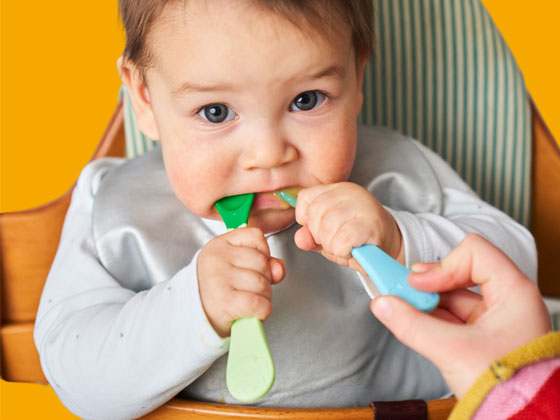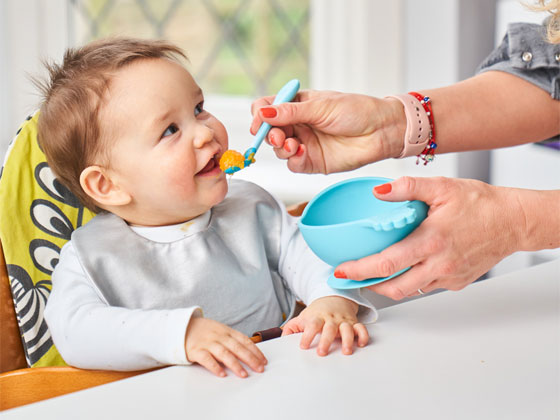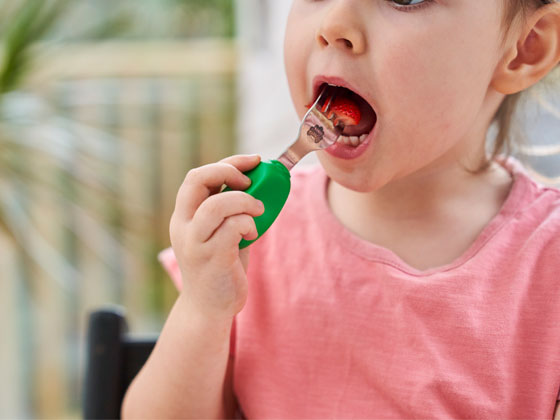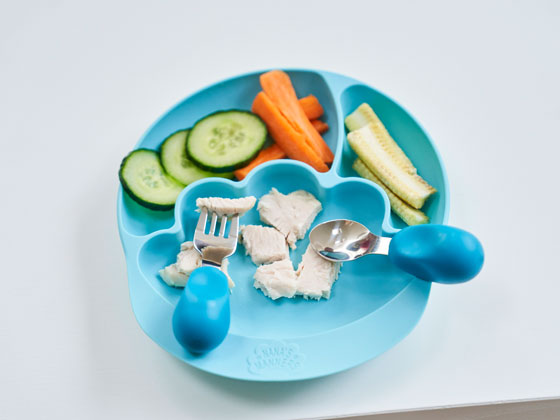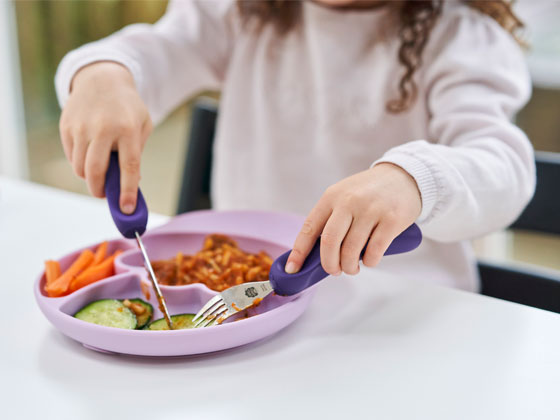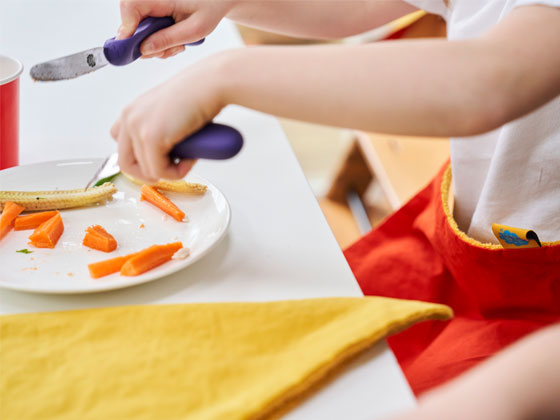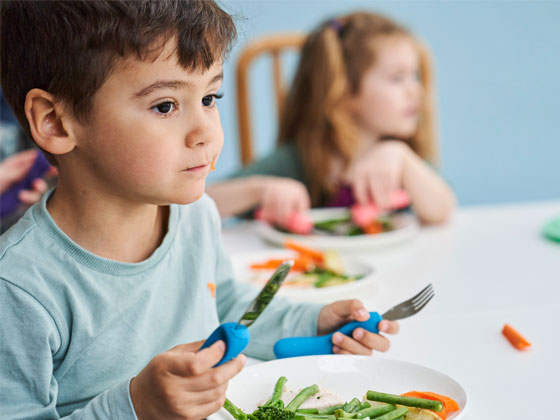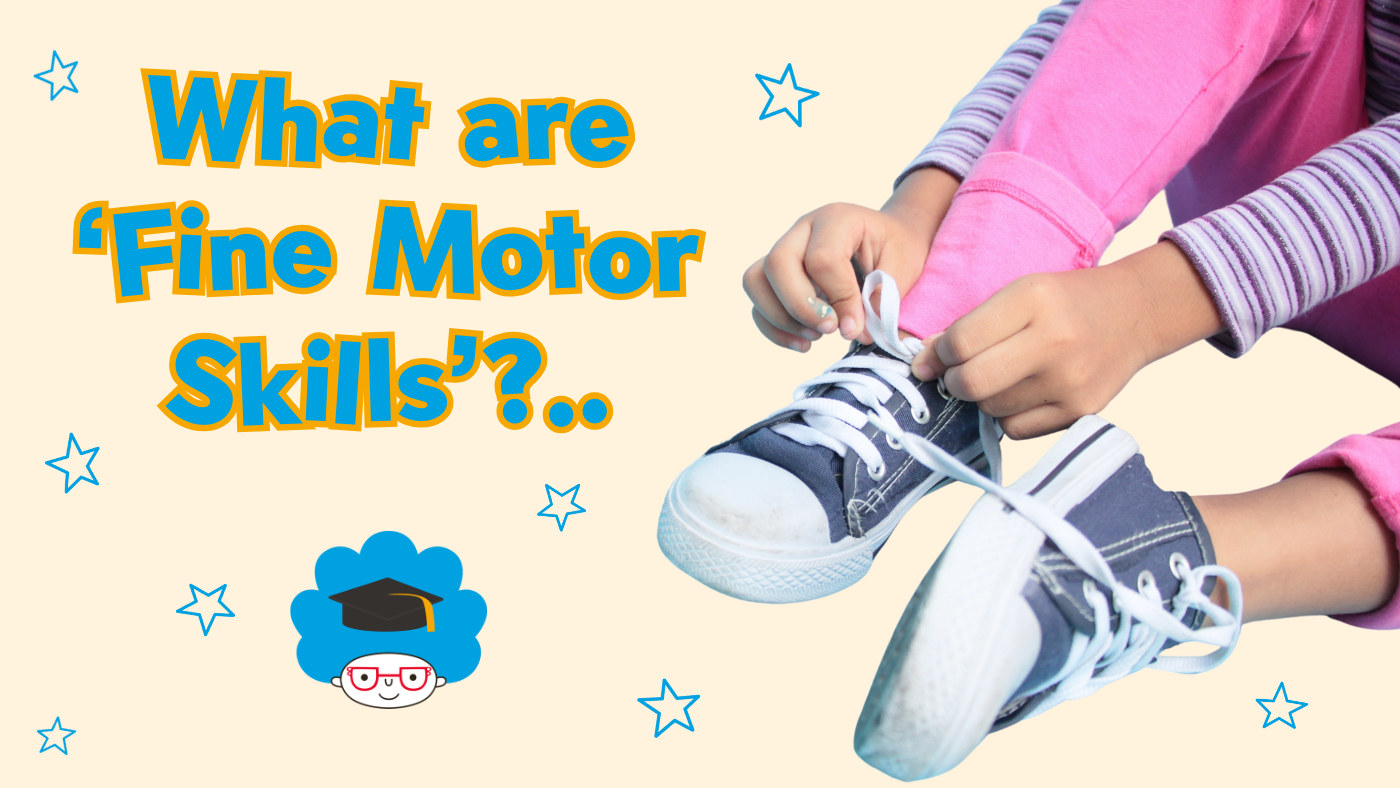What are ‘Fine Motor’ Skills?..
Fine motor skills are the ability to make precise movements using the small muscles in our hands, fingers, and wrists. These skills are crucial for everyday tasks such as writing, buttoning a shirt, using cutlery, and manipulating small objects. Developing fine motor skills in early childhood sets the foundation for self-confidence, academic success, independence, and overall physical co-ordination.

Why Fine Motor Skills Are Important...
Fine motor skills play a critical role in a child's overall development. They are essential for self-care activities such as dressing, feeding, and personal hygiene, helping children gain independence. Strong fine motor skills also support academic success by enabling children to write legibly, cut with scissors, and manipulate classroom tools confidently and efficiently. Furthermore, these skills contribute to cognitive development by encouraging problem-solving, spatial awareness, and hand-eye co-ordination. Without well-developed fine motor skills, children may struggle with everyday tasks, leading to frustration, low self-esteem and reduced confidence in their abilities.

How Fine Motor Skills Develop...
Fine motor skills develop progressively as a child grows, typically in stages. Here is an outline of how these skills emerge over time:
Babies (0-12 months)
- Newborns begin with basic reflexive movements such as grasping objects placed in their hands.
- Around 3-4 months, babies develop the ability to reach for and hold objects.
- By 6 months, they begin using their fingers more deliberately, transferring objects between hands.
- At around 9-12 months, they start using a pincer grasp (thumb and index finger) to pick up small items.

Toddlerhood (1-3 years)
- Children gain better control over their hands and fingers.
- They begin stacking blocks, turning pages in books, and using toddler cutlery with more precision.
- Scribbling with crayons and attempting to use zips or buttons are common milestones.

Preschool Years (3-5 years)
- More refined skills emerge, including cutting with scissors, drawing simple shapes, and dressing independently.
- Hand strength and coordination improve, allowing for more controlled writing, colouring and cutlery use.
- Engaging in activities like threading beads, puzzles, and building with small blocks enhances dexterity.

Primary School Age (5+ years)
- By this stage, children refine their handwriting, use tools like rulers and scissors proficiently, and engage in more complex art and craft activities.
- Playing musical instruments and tying shoelaces become achievable goals.
- They’ll become more confident in co-ordinating a children’s knife and fork to efficiently cut up and eat their food independently.
Using Cutlery and Fine Motor Skill Development...
Learning to use cutlery is an important milestone in a child's fine motor skill development. Initially, toddlers start by grasping spoons with their whole hand (known as palmar grip) and gradually develop the coordination to scoop food into their mouths. As they progress, they learn to hold forks and spoons with greater control, improving their grip strength and wrist movement. By preschool age, many children can use cutlery more independently, practicing with a knife and fork to cut soft foods using proper hand positioning. Mastering children's cutlery use enhances finger dexterity, hand-eye coordination, and the ability to perform precise movements, which are essential for other fine motor activities like writing and drawing.

Ways to Support Fine Motor Skill Development...
Parents and caregivers play a vital role in fostering fine motor development. Here are some effective ways to encourage these skills in young children:
Encourage Play with Small Objects: Activities like sorting beads, playing with play dough, and assembling puzzles help strengthen hand muscles.
Provide Drawing and Colouring Opportunities: Using crayons, markers, or chalk enhances grip strength and co-ordination.
Engage in Everyday Tasks: Let children practice dressing themselves, opening containers, and using their cutlery independently. Be patient and allow more time to complete the activity!
Introduce Cutting and Crafting: Safe use of scissors, tearing paper, and engaging in craft projects improves precision and control. Using a supportive children’s knife allows them to practice ‘sawing’ skills.

Offer Interactive Games: Activities like threading, lacing, and stacking blocks enhance fine motor co-ordination in a fun way.
Remember…
Fine motor skills are essential for a child’s overall development and independence. By engaging in age-appropriate activities, parents and educators can support the gradual refinement of these skills, ensuring children develop the dexterity needed for everyday tasks including mealtimes. Encouraging playful, hands-on experiences will not only strengthen their fine motor abilities but also boost their confidence and creativity. And have lots of fun during the process!

